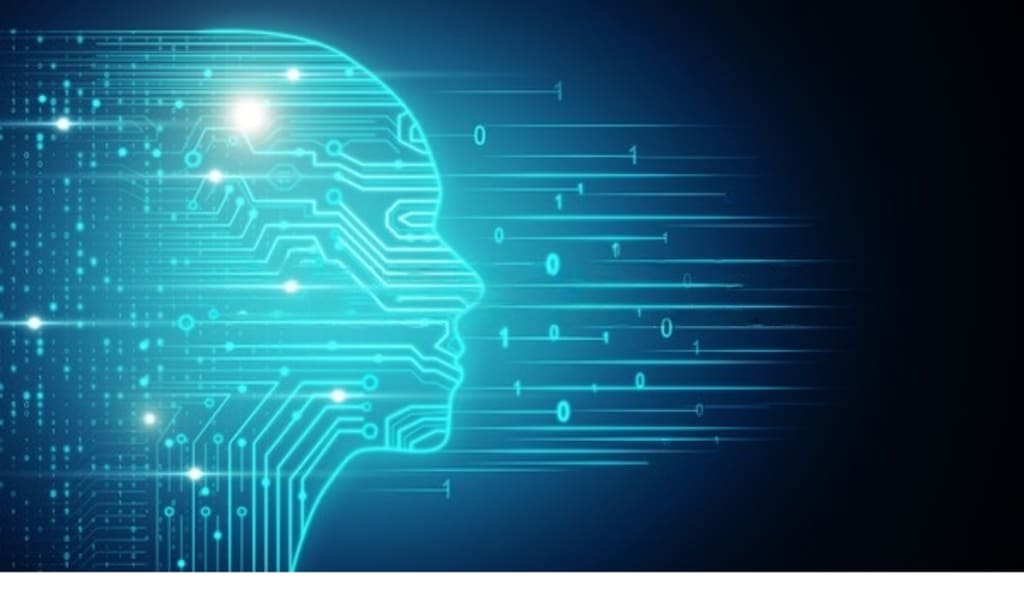THE FUTURE OF ARTIFICIAL INTELLIGENCE
THE CHANGE AWAITING HUMANITY

Artificial intelligence (AI) has gained increasing attention with the rapid advancement of technology in recent years. Artificial intelligence is a computer technology that mimics the workings of the human brain to perform tasks such as learning, decision-making, and problem-solving. The development of this technology is seen as a harbinger of significant changes awaiting humanity.
Artificial intelligence is being used in many fields, reducing the workload of people working in different job sectors. For example, artificial intelligence is used in self-driving cars, chatbots, robotic devices, medical diagnoses, and many other areas. In addition, through artificial intelligence, productivity is increasing, and production costs are decreasing in businesses. However, the development of artificial intelligence also raises some questions.
Can artificial intelligence replace people? With the development of this technology, artificial intelligence systems can replace human workers in many job sectors. This situation may increase unemployment and cause many people to lose their livelihoods. However, the idea that artificial intelligence will replace people is not entirely accurate. Artificial intelligence can only perform routine and repetitive tasks that humans do. The flexibility, creativity, and empathy of the human brain cannot yet be fully mimicked by artificial intelligence technologies. Therefore, environments where artificial intelligence technologies work together with people will become more widespread.
As artificial intelligence technologies rapidly develop, ethical principles for artificial intelligence also become important. Ethical principles for artificial intelligence are rules established to act consciously and correctly about problems and risks that may be encountered during the use of artificial intelligence. Care should be taken, especially in matters of privacy, security, and responsibility during the use of artificial intelligence. In this way, artificial intelligence technologies will be used for the benefit of humanity.
One of the areas where artificial intelligence is being used extensively is healthcare. Medical diagnosis is one of the areas where artificial intelligence has a significant impact. Artificial intelligence systems can detect patterns and anomalies in medical data that may not be easily recognizable by human experts. Artificial intelligence can also help healthcare professionals make more accurate and efficient diagnoses, reducing the risk of human error. Moreover, through artificial intelligence, it is possible to develop personalized treatment methods for patients, and medical research can be conducted more efficiently.
Another area where artificial intelligence is being used is in education. Artificial intelligence systems can analyze the learning habits of students and create personalized learning plans for them. With the help of artificial intelligence, educational institutions can detect learning difficulties of students in a more efficient and timely manner, and provide support to overcome these difficulties. In this way, artificial intelligence contributes to the development of a more individualized and effective education system.
However, there are also potential risks associated with the use of artificial intelligence. One of the most significant risks is the possibility of losing control over the technology. The more sophisticated the technology becomes, the more difficult it is to predict how it will behave. Therefore, it is essential to establish a regulatory framework for artificial intelligence to ensure that it is used responsibly and ethically.
Another potential risk is the possibility of bias in artificial intelligence. Artificial intelligence systems are trained using large amounts of data. If the data used to train these systems contain biases, the systems may reproduce these biases in their decision-making processes. This situation can lead to unfair treatment of certain groups and perpetuate social inequality. Therefore, it is essential to ensure that the data used to train artificial intelligence systems are free of biases.
In conclusion, artificial intelligence has the potential to bring significant changes to society in the coming years. However, to fully benefit from this technology, it is essential to use it responsibly and ethically. The development of artificial intelligence should not lead to the displacement of human workers or perpet.






Comments
There are no comments for this story
Be the first to respond and start the conversation.